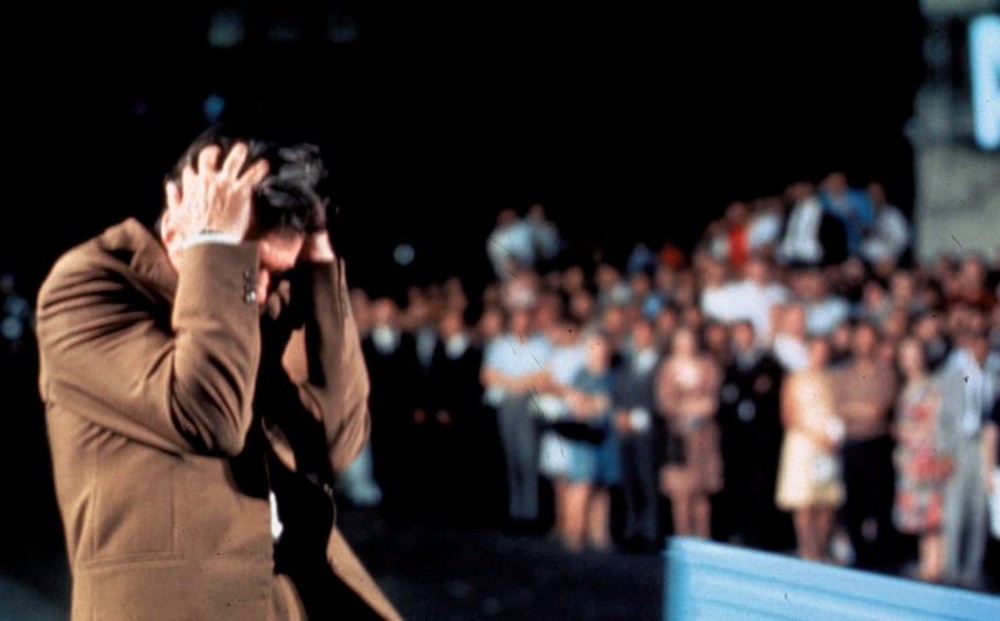Costa-Gavras’
Z
6:00
Saturday, October 6
(1969, Costa-Gavras) Pierre Dux (later head of the Comédie Française) lectures sunglassed-indoors cohorts on ideological mildew – “isms” – now “infecting” society; then, as Mikis Theodorakis’ music throbs, Dux’s helmeted and truncheoned police studiously look elsewhere as a raging, chanting mob fills the city square awaiting the emergence of charismatic deputy Yves Montand from his SRO ban-the-bomb address – but what are those two punks doing careening in on that three-wheeled kamikaze? “Just an accident” exhales legal honcho François Périer as he leaves it to tinted-eyeglassed magistrate Jean-Louis Trintignant (Best Actor, Cannes) to wrap things up nicely. But the crowds are painting big white Z’s in the street… Too much of a hot potato for French producers, Greek expat Costa-Gavras’ adaptation of Vassili Vassilikos’s novel of the real-life Lambrakos case was skillfully filmed on a shoestring in Algeria (doubling for Greece), with an incredible cast including Renato Salvatori (Rocco and his Brothers) and Marcel Bozzuffi (soon to be the shot-in-the-back poster boy for The French Connection) as the two punks; and the iconic Irene Papas, the only actual Greek in the cast, who’s told “He’s gone” by New Wave camera legend Raoul Coutard, cameoing in a break from his breakneck documentary-style shooting. All of which, combined with Costa-Gavras’ bullet-quick editing, gave Z an immediacy, authenticity, and excitement, that, along with perfect timing – premiering so soon after the right-wong colonels’ takeover in Greece – made it a worldwide smash and the winner of both the Cannes Jury Prize (awarded unanimously) and the Best Foreign Film Oscar (it was the official entry from Algeria). 35mm. Approx. 127 min.
Reviews
“At the same time a political cry of rage and a brilliant suspense thriller."
– Roger Ebert
“Almost intolerably exciting. An extraordinary thriller – one of the fastest, most exciting melodramas ever made… Costa-Gavras has made something very unusual in European films– a political film with a purpose and, at the same time, a thoroughly commercial film… It derives not from the traditions of the French film but from American gangster movies and prison pictures and anti-Fascist melodramas of the forties… Coutard’s searching, active [camera] style doesn’t allow you to get away. Remember when the movie ads used to say ‘It will knock you out of your seat?’ Well, Z damn near does.
– Pauline Kael

